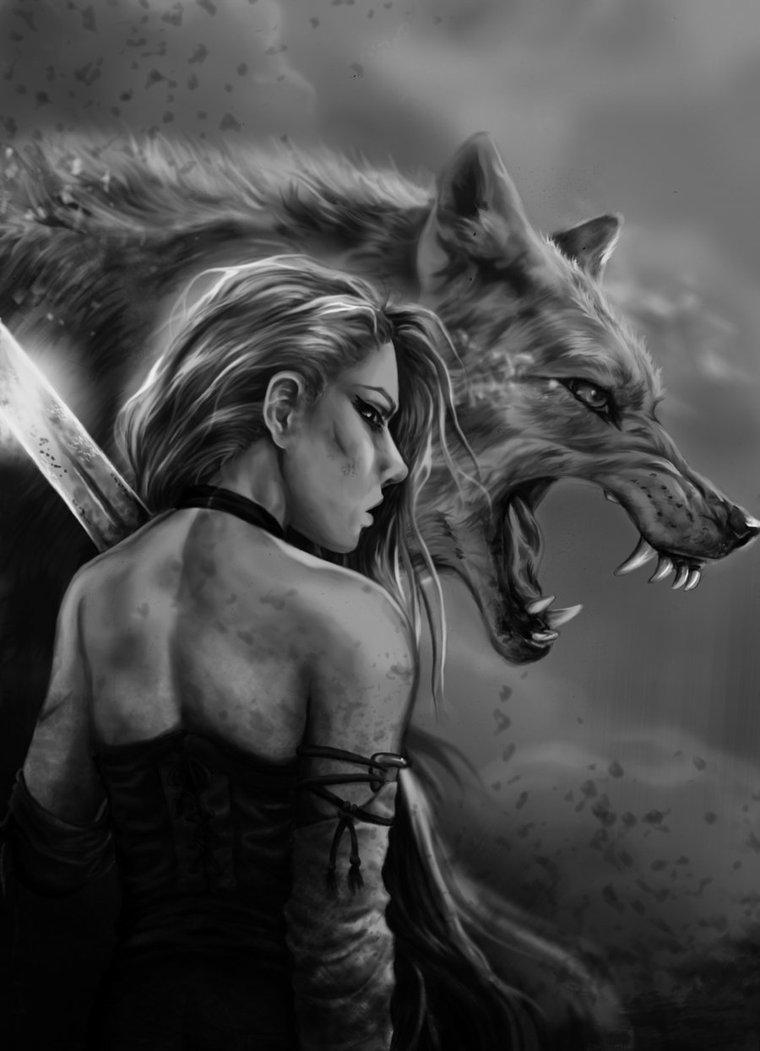
The new moon is the moon of secrets, ambushes, and hunting unseen. The werewolf chosen under the new moon, the Irraka, is the wolf that does not howl while hunting. She listens for her packmates, but she trusts them to know that she will not answer. She strikes, tearing out her prey’s throat so it cannot scream, breaking its leg so it cannot run, or pushing it down a bluff so it is far from help. If she can strike the killing blow, she will, but the Stalker is more interested in making sure that the killing blow is inevitable. When hunting with a pack, she often chooses not to claim this honor herself. The Irraka is proud of her role as the one to cripple the prey. The righteous Rahu or the boisterous Cahalith might be the one to take the prey’s throat at the end of the hunt, but it was the Irraka who snapped its femur or disemboweled it so it couldn’t run.
If the Irraka is hunting without her pack, or if the pack is hunting multiple targets, her tactics change considerably. An Irraka with no reason not to kill does so swiftly and efficiently. She stalks her prey from the shadows, never giving away her position, and maximizes every advantage she can think of. The new-moon brings terrain, distractions, and the prey’s weaknesses to bear before she explodes from the dark, bearing her target to the ground. Irraka instinctively think in terms of how best to gain lethal advantage over those around them.
This, in fact, is the most terrifying thing about the Irraka — a lull in conversation sees her mind wander to what sorts of weapons are in the area, whose jugular is unprotected, which bar patron is drunk enough that they would never see an attack coming. It isn’t that the Irraka wants kill everyone around her, but it gives her a weird comfort to know that she can. If she runs across someone she can’t figure out how to kill, she usually becomes intrigued by him. This intrinsic tendency to think of ways to murder people applies to her pack — other Uratha, when they catch a new-moon watching them, sometimes mutter “silih’mamu firha” (“stop thinking about murdering me”). Brave Uratha even ask the Irraka how she planned to do it.
More than any other auspice, the Irraka is comfortable hunting apart from a pack. She would prefer to have the pack’s support, of course — for a werewolf so focused on gaining advantage, the pack is an advantage she cannot ignore. But Irraka are also masters of stealth, and one werewolf is always better at hiding than five. She therefore hunts near her pack, hoping, trusting, that they are close enough to her that, should something happen and her prey gain advantage on her, they can come to her aid. Irraka therefore take exception when other auspices refer to them as “lone wolves.” The new-moon is as much a part of a pack as any werewolf. She simply trusts her packmates a little more.

